Search Results
Showing results 161 to 180 of 243

Secret Writing Devices
Source Institutions
In this activity about encryption, learners cut out a secret decoder badge from a handout and use it to encode messages to each other.
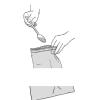
Matter of Degree
Source Institutions
In two separate bags, learners mix water with Epsom salts and detergent.

Can Nutrients in Water Cause Harm?
Source Institutions
In this water pollution activity, learners create pond water cultures and investigate the effects of adding chemicals or natural nutrients.

Breathing Machine
Source Institutions
In this activity, learners work in teams to construct human lung models from small plastic beverage bottles and balloons.
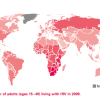
Mapping the Spread of HIV/AIDS: Trailing the Pandemic
Source Institutions
In this activity, learners act as epidemiologists by mapping the prevalence of HIV/AIDS worldwide.
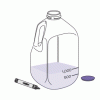
Lungometer
Source Institutions
In this environmental health activity, learners investigate their own vital lung capacities.
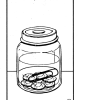
Reaction: Yes or No?
Source Institutions
In this activity, learners mix ingredients in a plastic bag, and then identify three characteristics of a chemical reaction: production of heat, color change, and production of a gas.

Heavy Metal
Source Institutions
In this activity (on pages 25-31 of PDF), learners soak sponges with different amounts of plaster of paris to simulate different levels of calcification in bone formation.
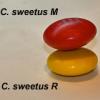
Survival of the Fittest: Variations in the Clam Species Clamys sweetus
Source Institutions
This guided inquiry three-part activity engages learners in thinking about the mechanism of natural selection by encouraging them to formulate questions that can be answered through scientific investi

Reading DNA
Source Institutions
In this activity, learners use edible models of the DNA molecule to transcribe an mRNA sequence, and then translate it into a protein.
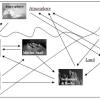
Carbon Cycle Roleplay
Source Institutions
In this creative roleplay activity, learners will explore the various processes of the carbon cycle using movement and props to aid in comprehension.

Make a Comet Model and Eat It!
Source Institutions
In this activity, learners build models of comets, using edible materials, to learn about comets' structure.
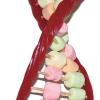
Have Your DNA and Eat It Too
Source Institutions
In this activity, learners build edible models of DNA, while learning basic DNA structure and the rules of base pairing.
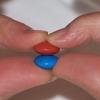
Survival of the Fittest: Battling Beetles
Source Institutions
This guided inquiry three-part activity engages learners in thinking about the mechanism of natural selection through data collection and pattern recognition.

Bendy Bones
Source Institutions
In this activity (on pages 19-24 of PDF), learners soak chicken bones or eggshells in vinegar for several days.
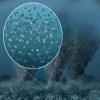
Searching for Life
Source Institutions
In this activity, learners discuss how life is defined and conduct a simple experiment, looking for signs of life in three different “soil” samples.

Sensory Hi-Lo Hunt
Source Institutions
In this outdoor activity, learners use only their senses to to find the extremes of several environmental variables or physical factors: wind, temperature, light, slope and moisture.
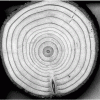
Trees: Recorders of Climate Change
Source Institutions
In this activity, learners are introduced to tree rings by examining a cross section of a tree, also known as a “tree cookie.” They discover how tree age can be determined by studying the rings and ho
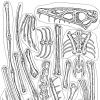
The Great Fossil Find
Source Institutions
On an imaginary fossil hunt, learners "find" (remove from envelope) paper "fossils" of some unknown creature, only a few at a time.

Environmental Chemistry
Source Institutions
In this activity with several mini experiments, learners explore the chemistry that helps scientists learn about the environment and how they can help save it.
